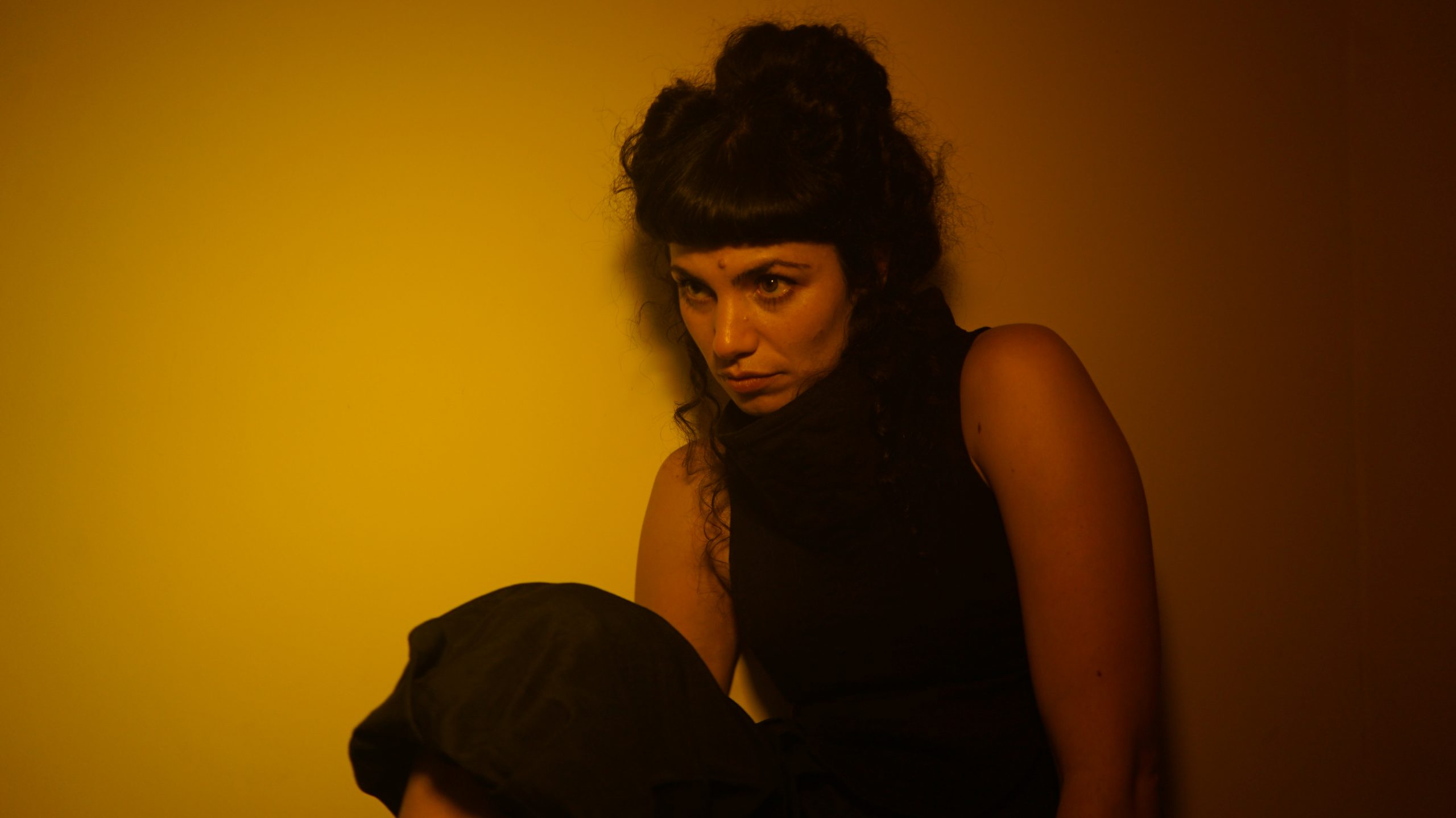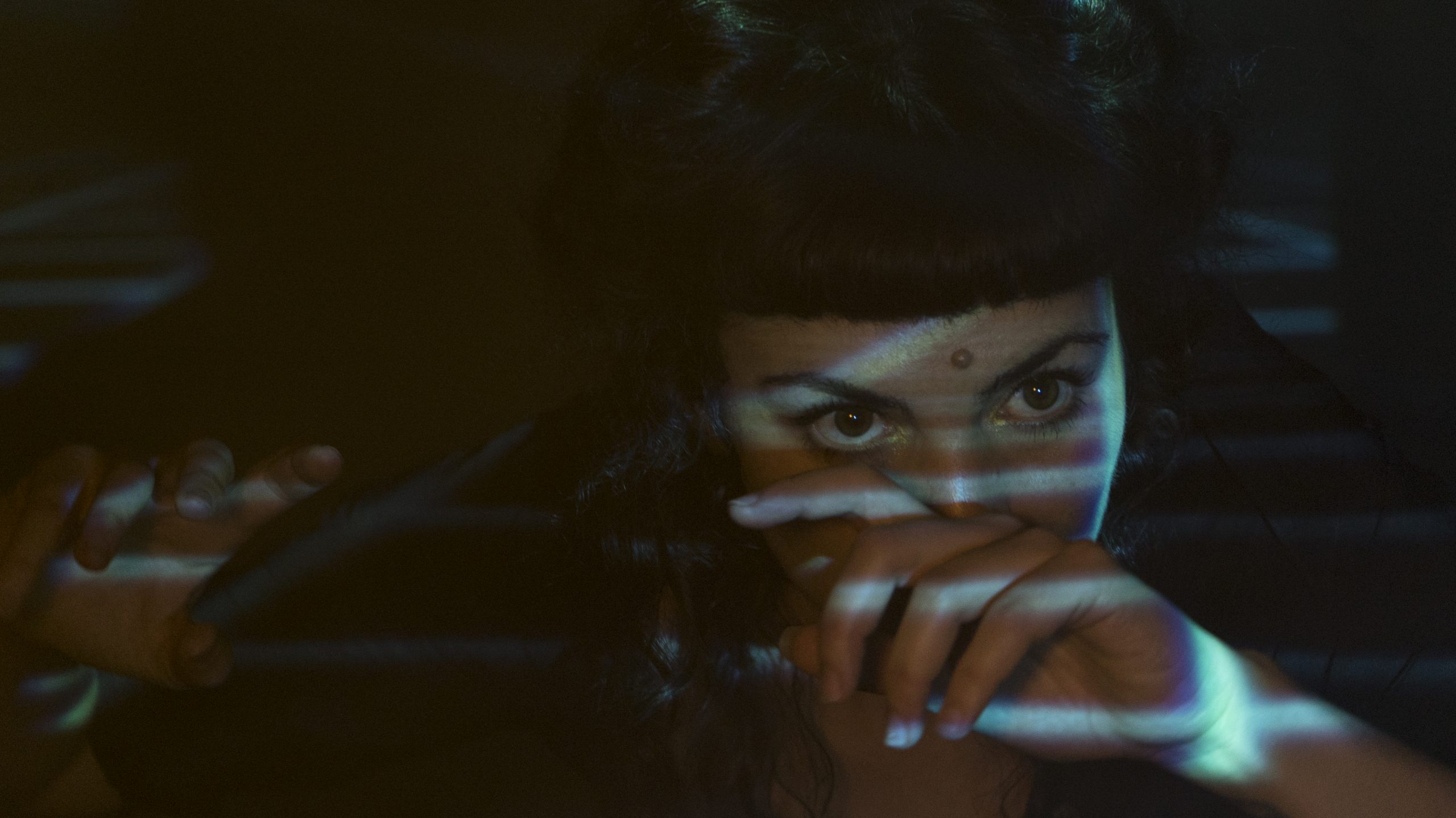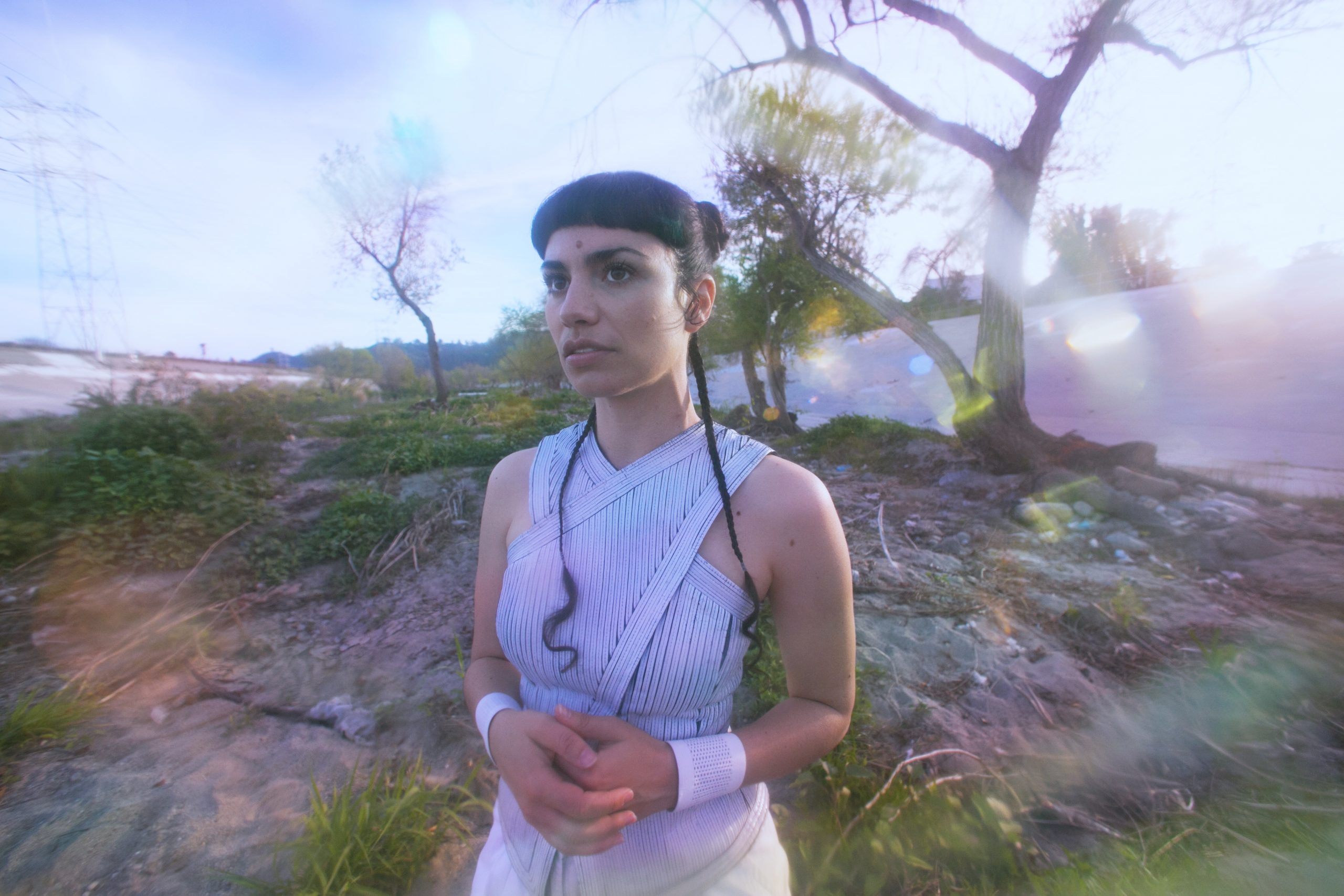
Alina Bea’s eclectic mind pulls back the universal human veneer on her debut album You Will Learn. The personal retrospection orchestrates its own soundscape for a progressive slice of avant-pop, which has become a signature sound for the Los Angeles-based multi-instrumentalist. And in the midst of “finding herself” throughout the 11-track narrative, Alina works through shared fears that are timeless in its nature.
“King of Nothing” seems to be the catalyst of examination. The dark, electronic production extracts the artist’s “post-apocalyptic” vision, stemmed from the aftermath of Trump’s election. Its words are equally stirring, matter-of-factly “crowning” a shaded leader. Crafted in a moment of “what ifs,” its visual companion though is an imaginative and cathartic release. Shot entirely in the artist’s apartment alongside director Noel David Taylor, “King of Nothing” unravels from idea to manifestation all at the hands of projections and four miniature post-apocalyptic scenes.
While the artist admits to LADYGUNN that the track “is not a peaceful song,” there’s a tinge of peace for the future – as a community and internally – that is bestowed gracefully through the video as explained in our interview below.
Hi Alina, hope you’re well. How have the days of quarantine been treating you?
Oh boy. Quarantine has been a lot of things. So many different extremes. It started out with good amount of panic and fear. Then I settled into a kind of peaceful introspective time. Then a period of agency and action and now I’m trying to balance it all out. Trying to adapt to every new thing that’s thrown at us. Trying to get comfortable with impermanence. It’s a lot!
You just released the video for “King of Nothing” which is a true visual intergalactic retrospection that follows suit of your album’s “impending doom” theme. And yet despite this internal tug of war, there seemed to be some peace at the end of the video. Did this come naturally as you and director Noel David Taylor worked on the visual component, or was this always the underlying message?
It definitely came naturally as we were making the video. It is certainly not a peaceful song. I suppose there is an element of peace and acceptance that might come at the end of the world. “Post-apocalyptic” implies that perhaps the worst is over. I think of it as more of a “now what?” moment. But there is a kind of peace in that.
“King of Nothing” was born from the time right after Trump got elected and the uncertainty and fear many of us felt. From when you first wrote it to now, do you still feel the same?
It’s bizarre to be releasing it now, since many of the things I feared would happen ended up coming to pass (in a way). But there is a big difference between how I felt when I wrote it and how I feel now. When he got elected, I just wanted to give up. It was a rude awakening about this country; like learning that your parents aren’t who you thought they were. Since that time in my life, I have learned that we can fight back. It doesn’t do us any good to throw up our hands and say the country is fucked. We can try to do something about it.
The video is truly imaginative, especially to learn that it was created entirely in your apartment. I read that you and Noel David Taylor built 4 miniatures of “post-apocalyptic” scenes with any materials you had. How was that process to create these sci-fi backdrops from a part of yourself that very much well came from fear, and the unknown?
Oh, it was the most fun I have had in a very long time. We were watching a lot of sci-fi movies from the 80s and 90s that use miniatures and practical effects and they were a huge inspiration. It felt amazing to turn our fear into something productive. Constructing post-apocalyptic landscapes was a great way to work through the bad feelings. Making tiny, literal manifestations of our fears. Very cathartic.

Your debut album You Will Learn is gorgeous. The production is very lush and really pulls from a darker, electronic world. One that stood out to me is your track “Outnumbered.” It took me back to Radiohead’s In Rainbows and then turned into your signature eclectic storytelling. What inspired you to keep more of an organic instrumental feel in the opening half?
Thank you! This song was a true collaboration with my producer and co-writer, Theo Karon. It was actually a track that he had made with a band of his in Chicago years ago. They never quite finished it to his liking, so he gave it to me to write a song to. It was important to me to strike a balance between organic instrumentation and electronic production on this record. The moody quality of this one, with its beautiful harp and guitar intro, really moved me. I feel like it is a turning point on the record, from the relatively pop-oriented songs in the first half.
The album also utilizes strings, tape loops, and at times jazzy piano pieces towards the end. Assuming this is a conceptual album, could you explain if there are any meanings behind the track’s arrangements? It feels as though the story is intentional, opening with “You Are Not Alone,” to its closer, “I Think I Understand.”
The album definitely vacillates between looking outward and looking inward. We intended for the opener to be huge and expansive and to (hopefully) draw you in. Then come the more personal/pop songs. Then it goes way far out into experimental land. And eventually comes back around to the final song, which has a kind of melancholy, introspective acceptance (and a gorgeous string arrangement by Dina Maccabee). We wanted to take the listener on a journey, whilst still keeping it anchored in personal experience.
You Will Learn also takes a self-examined approach, besides the political commentary, regarding you just turning 30. In the process of crafting the album, did you find “who you wanted to be”?
I think I did, without really realizing it at the time. In retrospect, the album really reflects the growing pains I was experiencing. There are moments of hope and hints of acceptance, but I don’t think I was able to fully embody those feelings until after the album came out.
In a press release you mention that the album is also a “promise and threat,” stating “you’re not necessarily going to like what you learn about yourself and the world when you grow up.” Can you elaborate on that and if the meaning changed now that the album is released?
The feelings of disillusionment that inspired this record are still pretty real to me. The big thing that has changed, as I mentioned before, is what I choose to do about them. I spent a good amount of time wallowing and raging and lamenting. I am now trying to focus more energy on taking action. It’s a struggle, especially in a time as uncertain as this one we are in. But I have found it to be worthwhile.
Were there any tracks on the album that you hesitated on releasing?
I don’t think so. This album took several years to make. I felt very ready to release all of these babies by the time release day finally rolled around!
Do you have anything else that you would like to add?
Thank you for these thoughtful questions! I guess I just want to say I’m working on new songs and I look forward to sharing them. Thank you for listening!

CONNECT WITH ALINA BEA
INSTAGRAM // TWITTER // FACEBOOK
photos / Noel David Taylor & Amanda Mills
story / Janette Ayub
